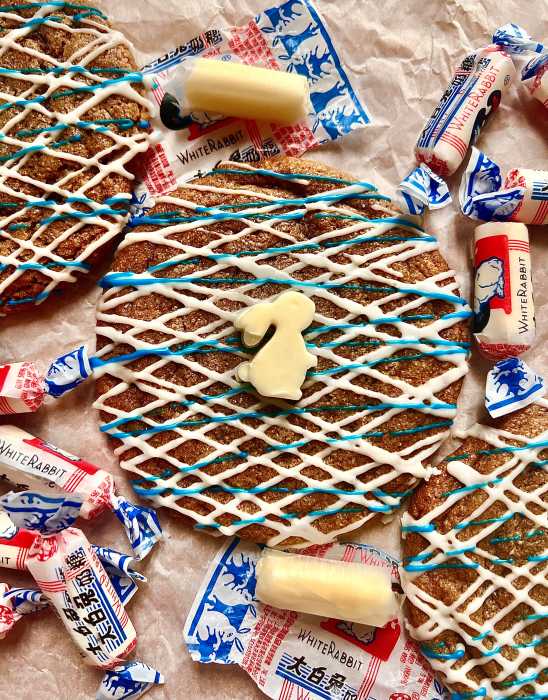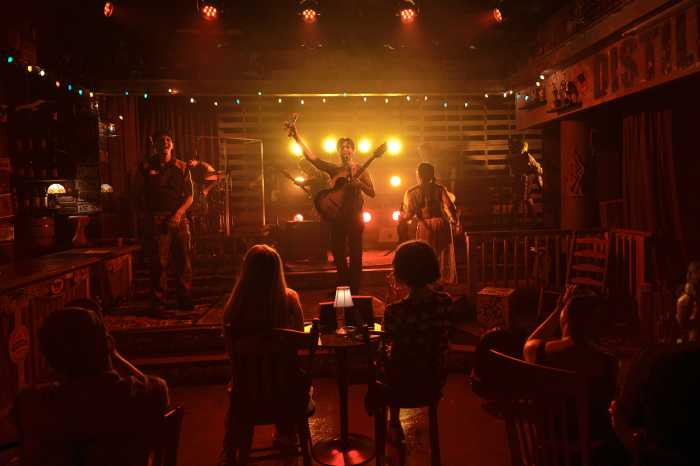By Alex Berger
Every Easter morning, without any warning, he colors eggs, red, green or blue.Some he covers with spots, some with quaint little dots, and some with strange mixed colors, too.Red and green, blue and yellow, but each unlike his fellow, are eggs of every hue.If this story you doubt, he will soon find out, and what do you think he will do?On Easter morning, he'll bring you without warning, these eggs of every hue! “The Bible does not mention bunnies, chocolate or decorated eggs. Reducing the holy season to candy and bunnies is as sacrilegious as saying Christmas is only about Santa.” Ð An irate readerReaders, I am principally a humorist and generally try to inject a few smiles and chuckles into my articles. Gloria is a kindergarten teacher and I generally try to apply many of them (if appropriate) to children, especially those devoted to the holidays. In columns gone by, I have emphasized the “fun” aspects of Easter (and Passover, and Christmas) as seen through a child's eyes – the Easter Bunny, hunting for Easter eggs, and other pursuits children associate with Easter, which brings joy to youngsters. And, as usual, I receive a flood of mail from angry readers (see above), who insist that the holiday is a holy one, and I should stress the religious aspect of the holiday. Therefore, last year, I wrote a religious article (omitting mention of the Easter Bunny), and the children objected. So, now, I will try to please both points of view. In the Western World, the name “Easter” was derived from the Saxon name for Eostre, the goddess of spring. The holiday is observed on the first Sunday after the first full moon after the first day of spring – unless the date falls on the first day of the Jewish Passover Festival. In that event, Easter is moved to the next Sunday. (Get it? Got it? Good.) If not, direct your arguments to the Council of Nicaea, which established the rules in 325 AD. This year the calendar marks March 23 as Easter Sunday.Easter, of course, is a highly religious holiday, celebrating the cross, the church and rebirth. It marks the celebration of Christ and the beginning of his new life. On Easter Sunday, Christians attend church services and recall the biblical story depicting how Jesus disappeared from his tomb on the third day after his crucifixion. An angel appeared to his followers and announced, “He is risen.” This is a beautiful, religious occasion.The youngsters, on the other hand, view Easter strictly as a “fun” holiday. They look forward to finding baskets filled with colored eggs and other sweets. They go looking for colored Easter eggs, figuratively hidden away by the Easter Bunny. “Who brings these treats?” children wisely ask the adults over dinner. “The Easter Bunny,” the adults answer, “But why would a rabbit have eggs? They question.” “Eat your vegetables,” the parents answer.Don't fret, frustrated parents. Simply answer the question precisely in the following manner. According to legend, Eoster, the goddess of spring, changed a bird into a hare (rabbit). Not forgetting their old habits, however, the transformed hares continued building nests and filling them with eggs.The familiar picture of a hare with a basket of eggs started in Europe. He was the symbol of Easter for the Germans who came to America in the 18th century. Their children believed that the white hare or rabbit left brightly colored eggs for all good children on Easter morning.In 19th century America, the Easter hare became the Easter Bunny. He delighted children with baskets of eggs, chocolates, candy chicks, jelly beans and gifts on Easter morning.Easter egg hunts became part of the celebration of the holiday in many countries, the eggs were hidden in public places and the children were invited to find them. Now comes the good part for children. What is an Easter column without a few Easter egg “yokes” (jokes) tossed in? A child is waiting to tell the Easter Bunny Ð “Since Christmas came and went and Santa did not bring the gift I wanted, you are my last hope.”Every Easter the farmer had Easter eggs for breakfast. He owned no chickens, and the Easter Bunny never left him any eggs. Where did he get the eggs? – From the Easter Duck. Where do blue Easter eggs come from? – From depressed chickens, of course.To all celebrants – May your Easter be inspirational, healthy and happy. To all the children – May you enjoy the Easter festivities and you find the elusive Easter egg. And, to the world – May all enjoy peace and the absence of illness.































